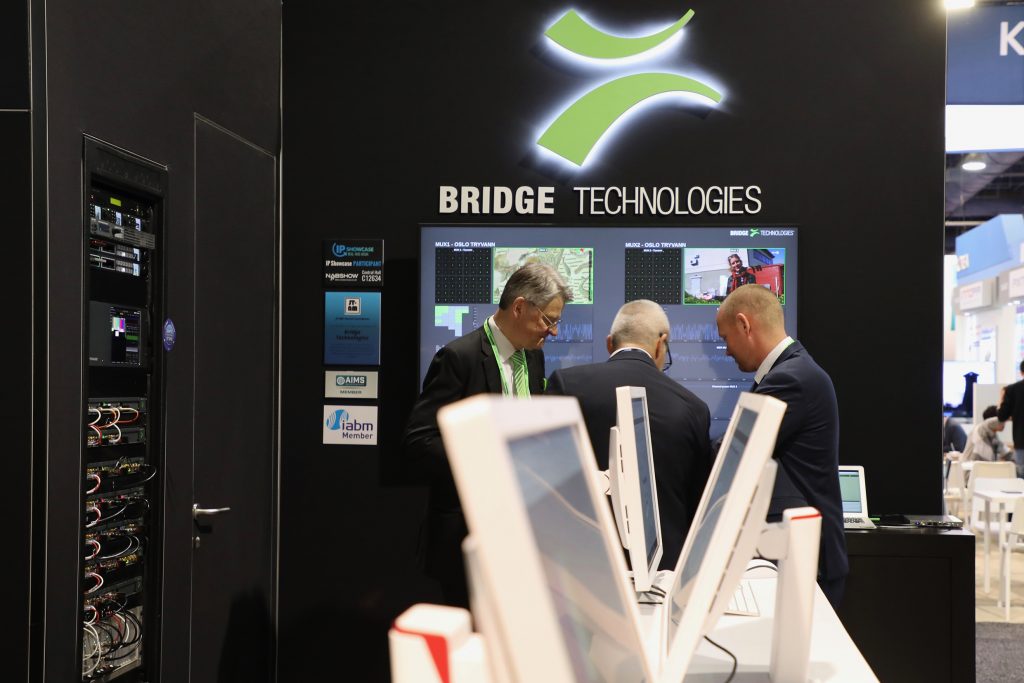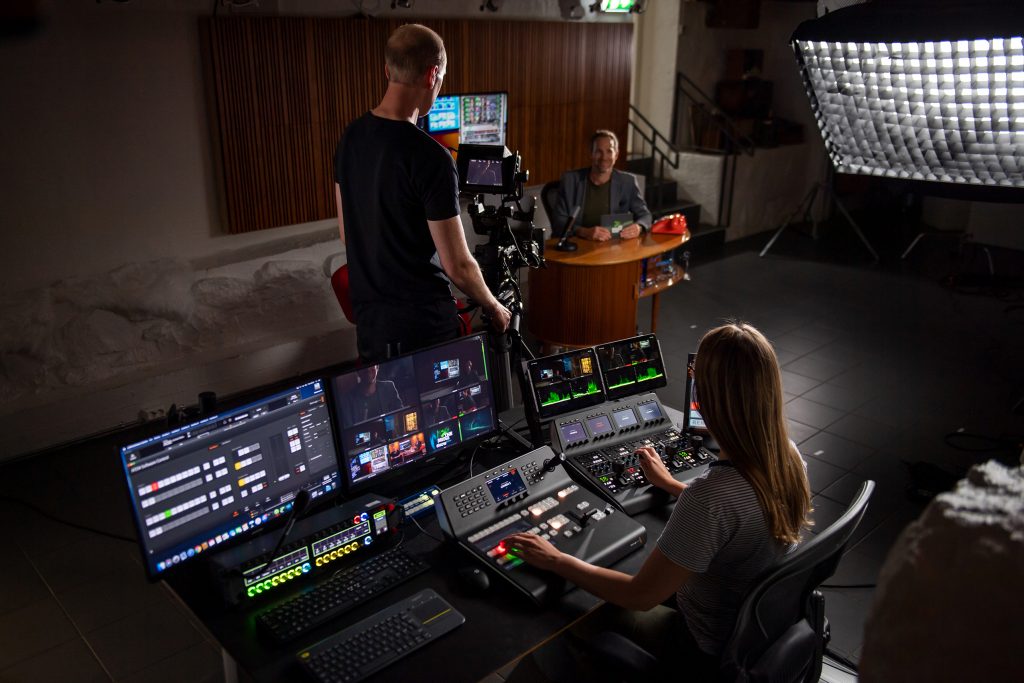Bridge Technologies April Blog Post
April 30, 2021
Team Talk
In the field of technology, there’s a constant drive to know where to place the next big investment. IoT? Blockchain? IP? 5G? Sometimes it feels like you need a crystal ball.
At Bridge, we have no such problem though – we know exactly where to put our investment: in people. Yes, yes, we know it’s a horrendously cheesy line, but we really do mean it. Core to our philosophy has always been that even in the most complex of technological environments, the human dimension sits at the heart of it.
Normally when we talk about this, it tends to be from a product and user perspective; stressing the importance of developing products which are usable, intuitive and which carry meaningful benefit to the user experience. But of course, in the technology field, we’re all pretty familiar with the idea of there being a relationship between the quality/nature of inputs, and the subsequent quality of outputs. So it follows that if the human dimension matters to us when it comes to outputs, we need to be equally focused on the human dimension of our inputs too.
So this month we thought we’d have a look behind the scenes to see what it is that our employees get up to (which, it turns out, is more than just drinking coffee or other caffinated fizzy drinks). In our engineering department particularly, we’re constantly seeking to expand our pool of talent and invest in the next generation of broadcast and the engineers who are driving it. So what are the concerns that drive the expansion and maintenance of that team?
The value of experience…
Can there be any industry that moves as fast as the field of technology?
But when the broadcast veterans amongst us get together at shows like IBC (oh them were the days, eh?), it’s not generally the ancient technologies that sit at the heart of our conversations, but the experience we had with them. Anecdotes about tight deadlines, tight spaces, tight budgets – and the creativity we used to get around these issues. It wasn’t necessarily about the technical knowledge we had, it was about how we used it.
That’s really what it comes down to; the subtle difference between knowledge and experience. To rework a slightly tired old saying; knowledge is knowing that a tomato is a fruit, experience tells you not to put it in a fruit salad. Much of the knowledge that engineers in the broadcast industry carry from 30 years ago is, technically, obsolete. But – so long as they have an open mindset and aren’t the type to cling doggedly to ‘the old ways’ – then the experience they gained from acquiring it, applying it and watching as things have since evolved gives them much broader lessons that can be applied every single day. It also frequently helps to give a bit of context and perspective, which can be much needed when it seems that the muck is about to hit the proverbial.

…versus the fresh eyes of a new perspective
Which is to say then; experience is still a hugely valuable asset, and Bridge’s industry experience as a collective is a point of pride. But it also means that we operate in an industry where experience isn’t the be-all and end-all; where creativity, drive and a learning mindset carry equally important value.
Not everyone has quite caught on to this way of thinking within the wider industry. You’ll have heard at least one apocryphal story of job adverts that call for eight years of experience in programming languages that have only been around for four. And so you’ll notice – if you ever happen to stumble across our careers page, that when we list positions, we tend to be quite ambiguous about the experience required. We may put something like 0-7 years’ experience – but that’s just to give the applicant an understanding of the level of the position. And crucially, as you can see; ‘zero’ is an accepted value. We’re as eager to see new graduates join our ranks as we are battle-hardened (or battle-scarred?) members of the old guard.
Or we might ask for ‘solid’ experience in a particular field or discipline. That’s very much because we understand that mindset and the quality of a given experience matter far more than somebody who has undertaken the same task, day in, day out for 30 years – never updating their knowledge or pushing their abilities.
The duality of the job: things are changing
Look, much as we like to break the rules, we’re not completely re-writing the playbook: we know that front-end and back-end development are still their own things. But it’s difficult to deny that the lines are becoming a little blurred. Where once the delineation between the two was pretty stark, and back-end developers weren’t really called upon to consider anything as bourgeoisie as ‘user experience’, now the two sides of the fence need to have a much greater awareness of each other.
This is particularly true at Bridge, where a single overriding concern governs how our engineers go about things; how can we make analytical data visually meaningful for users – even those without a specific technical background? In essence: how can we make the complex simple? Applying this type of thinking requires our engineers to have a much more holistic approach to problem solving; taking into account the whole development chain, and being well-versed in the business case that supports their endeavours.
Straight from the source
This means that actually – when you boil it down – we are looking for a lot from the engineers that join us. We’re asking for them to be adaptable, creative and driven, asking them to constantly grow and learn, and to be capable of holistic and joined up thinking with a wide breadth of development knowledge that isn’t only focused on a specific task or area of responsibility.

However, we do like to think that we offer quite a lot in return – not least of which an enjoyable working environment that encourages, supports, rewards and engages. But we decided that rather than telling you about it second-hand, we’d get input from one of the team: so here’s Kristin’s perspective on working for Bridge Technologies.
I came to Bridge a year-and-a-half ago from outside of the industry to take up a position as project manager. It means the learning curve has been steep, but to be honest I’ve relished the fact that there’s always something new to learn; as I’ve built up a knowledge of complex systems, products and industry standards, the way that I have come to understand things has become more than the sum of its parts.
I enjoy the people I work with hugely. I’m native to Norway and have always thought it a beautiful place to live – but it’s been particularly interesting to hear the perspectives of my non-Norwegian colleagues – we’ve got quite an international team in our Oslo offices. They often express how progressive the work/life balance is – which is partly a function of Norwegian culture generally, but also related to Bridge’s internal culture, which tends to be very open, flexible and non-hierarchical.
It’s also a very social place. Everybody here has a big personality; any clichés about engineers being shy and retiring is certainly not in evidence here. Ultimately, I love working in an environment where I’m constantly challenged in a way that is supportive rather than stressful, and where my efforts have the potential to make a real impact, and are recognized and appreciated as a result.
The industry as a whole is dynamic and constantly changing, so I think my advice for anybody wanting to progress within it – be that with Bridge or elsewhere – is to stay curious and keep learning.
Maintaining a dialogue
Much of industry dialogue is focused on the way that we intend to push forward collectively on a technological level. But at Bridge, we think it’s equally important that we keep talking about the human dimension too. How do we set the building blocks for that technological development? How do we support a new generation of engineers – encouraging them not just out of university, but at the earliest stages of education? How do we get the best out of them and give the best to them? How do we encourage equality and diversity, and benefit from the range of perspectives and insights this can bring? How do we effectively meld the experience of industry veterans with the fresh eyes of recent graduates?
We don’t have all the answers. But we feel confident that sharing a beer together at the next trade show – whenever that may be – will be an important first step.